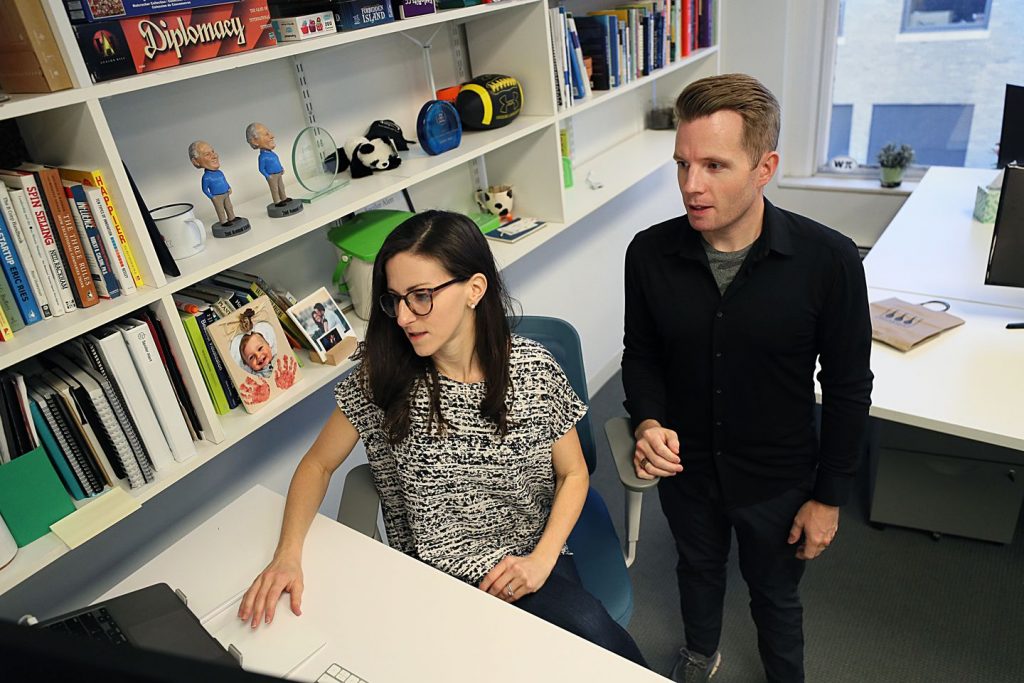IDEAS Alum: Spoiler Alert featured in the Boston Globe
While students at MIT, Spoiler Alert co-founders participated in the PKG Center’s IDEAS Social Innovation Challenge. Spoiler Alert is a platform that aims to reduce food waste to increase access to affordable foods. Read the full article about this IDEAS Alum and their impact on the Boston Globe website. Spoiler Alert was also recently recently featured in this MIT News article.

Over the past year and a half, the nation’s food chain has been upended by the pandemic, with supply woes disrupting grocery stores and a hunger crisis hitting Americans hard. And a number of major food brands have turned to Boston-based Spoiler Alert to make sense of it all, rerouting food that might have been wasted to the places that can use it most.
The 15-person startup has worked with the likes of Nestlé, Kraft Heinz, Campbell Soup Company, and Danone North America to save more than 200 million pounds of food that might have gone wasted. On Wednesday, citing that success, Spoiler Alert announced that it had raised an $11 million Series A funding round, money it will use to keep growing.
“The pandemic and certainly supply chain constraints have had disproportionate impacts on waste,” said Ricky Ashenfelter, Spoiler Alert’s cofounder and chief executive officer. “[The $11 million] allows us to scale our team, build out the platform, further invest in continuing innovation,” he said. “And to keep more and more food from heading to the dump or destruction.”
When Spoiler Alert launched out of MIT in 2015, its original focus was building software to help food manufacturers find ways to donate items they might otherwise toss out. But after working closely with those companies, they learned that donations weren’t the only way for brands to move excess products.
“Organizations like Whole Foods, Walmart, and other primary retailers tell manufacturers that they want a certain number of guaranteed days of shelf life of product before it comes into their grocery store,” Ashenfelter explained. “That might be 20 or 30 days for dairy products. It might be 60 or 90 days for certain shelf-stable-type products.”
But when the production gets delayed — perhaps because of supply chain slowdown —the big stores won’t accept items, because it’s not worthwhile to stock a tub of yogurt that’s only good for two weeks instead of three.
Now there’s a growing network of secondary “value channel” marketplaces willing to buy these excess items. Spoiler Alert’s business-to-business software acts as a marketplace, letting big brands sell surplus food to stores such as Ollie’s Bargain Barn, Grocery Outlet, and Ocean State Job Lots, or direct-to-consumer produce companies such as Misfits Market. It also works with nonprofits like the Daily Table grocery store and food bank networks across the country to ensure that excess products get to those in need.
Continue reading the rest of this story on the Boston Globe website. Also, read more about Spoiler Alert in this MIT News article!
Tags: Agriculture & Food, Climate Change, Food Insecurity, IDEAS, IDEAS Alumni Profiles, Tech for Good
